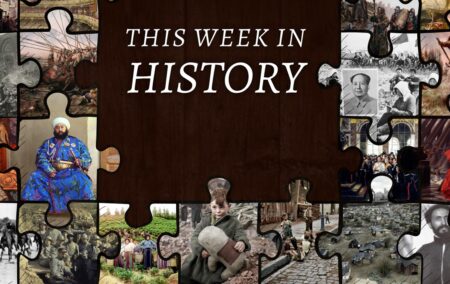This Week in History recalls memorable and decisive events and personalities of the past.
13th September 1541 – After three years of exile, John Calvin returns to Geneva to reform the church under a body of doctrine known as Calvinism
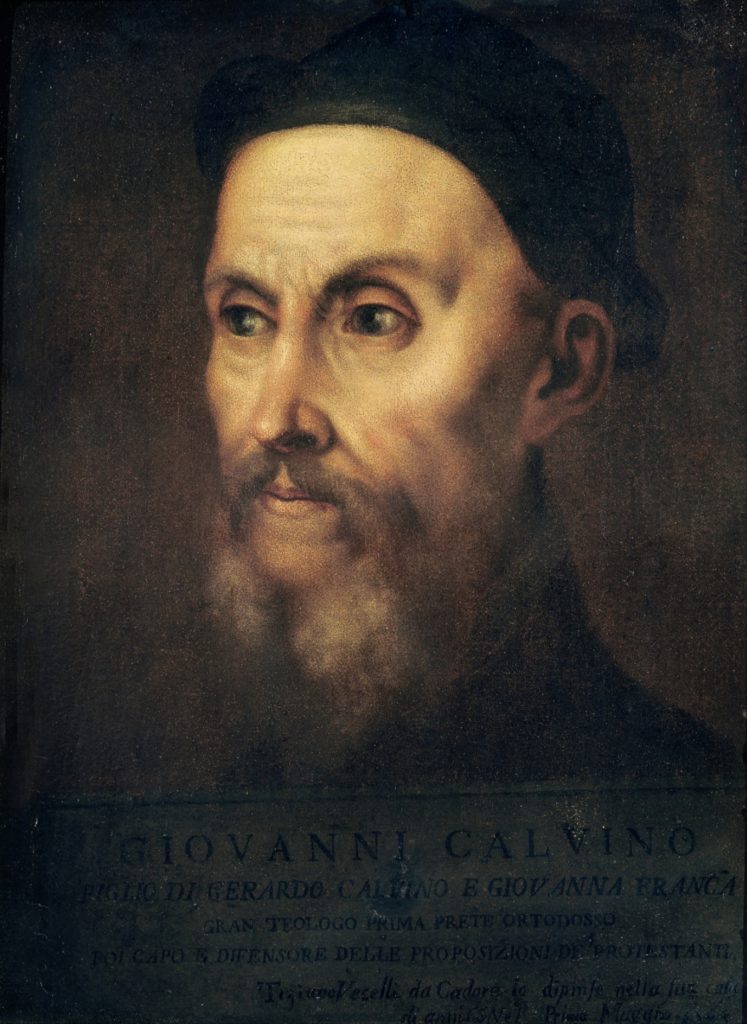
Born in 1509 in northern France to a father who worked for the Catholic Church administration, John Calvin was involved in the life of the Church from his earliest years; he was already working as a bishop’s clerk by the age of 12.
In the 1520s, Calvin went to study law, first in Paris, then Orleans, where he learned Greek and studied the Bible. Sometime in the 1530s he fell in with the reform movement then sweeping Europe, eventually joining the reformers, and becoming a heretic in the eyes of the Church.
In 1536, Calvin published his first theological work, Institutes of the Christian Religion, which expressed his commitment to the reformers’ cause and sought to introduce readers to the Christian faith from a reformer’s perspective.
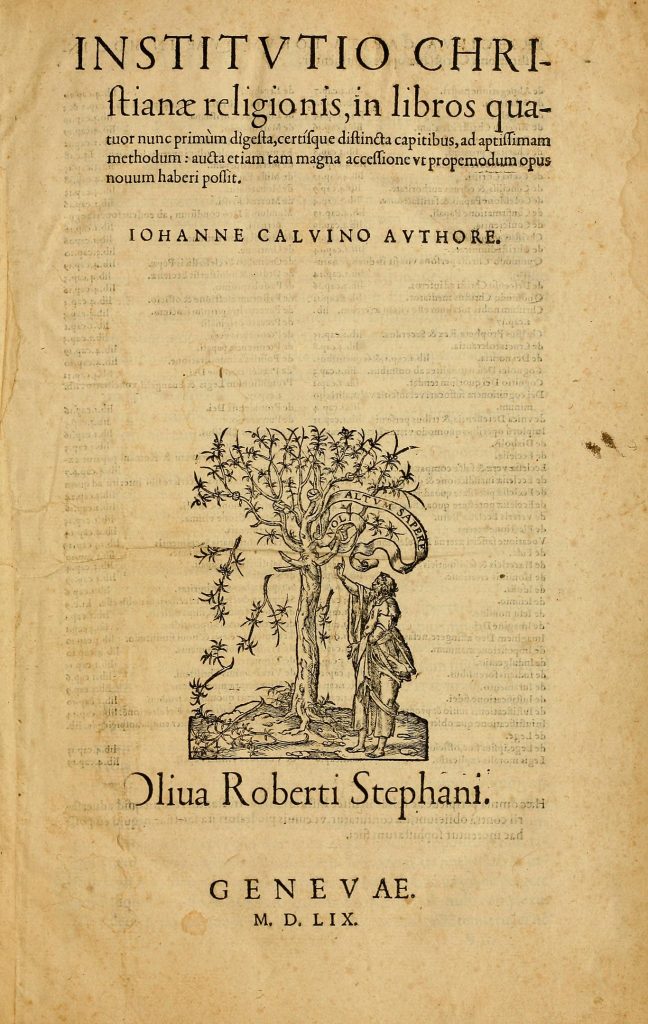
Calvin worked for a time as a secretary for a French princess. However, growing persecution of heretics by the French authorities prompted Calvin to leave France. On his journey to the Holy Roman imperial city of Strasbourg, Calvin stopped in Geneva, where he was convinced by a local reformer to stay and assist in reforming the Genevan church.
He became heavily involved in this over the next year; he was appointed as a pastor, participated in services and begin writing documents on reforming the church.
Resistance to the reforms promoted by Calvin and his mentor led to their being politically isolated in the city, the hostility eventually leading to a riot at their church in 1538. Calvin was promptly exiled the next day by the town council of Geneva. (Local governments were immensely powerful in the early modern period and often acted as independent entities.)
Eventually Calvin ended up in Strasbourg, his original destination, where he became a minister, preaching to church congregations and developing his theology with further writings.
By 1541, the political situation had changed in Geneva and church attendance had fallen with Calvin’s absence; the city council asked him to return and continue his work reforming their church.
Once returned, Calvin would grow to become more powerful in Geneva. He further developed his theological doctrines, increasingly emphasizing the doctrine of predestination. For years, though, he would still face extreme opposition from many within the city who sought to see him exiled or executed.
By 1555, however, Calvin had become almost unmatched in his control over Geneva, and his political opponents were executed or exiled from the city. Beyond Geneva, his writings on church reform became deeply influential across Europe, too, and he was considered second only to Martin Luther in fame and popularity among reformers across the Continent. He died on 2 May 1564 aged 54.
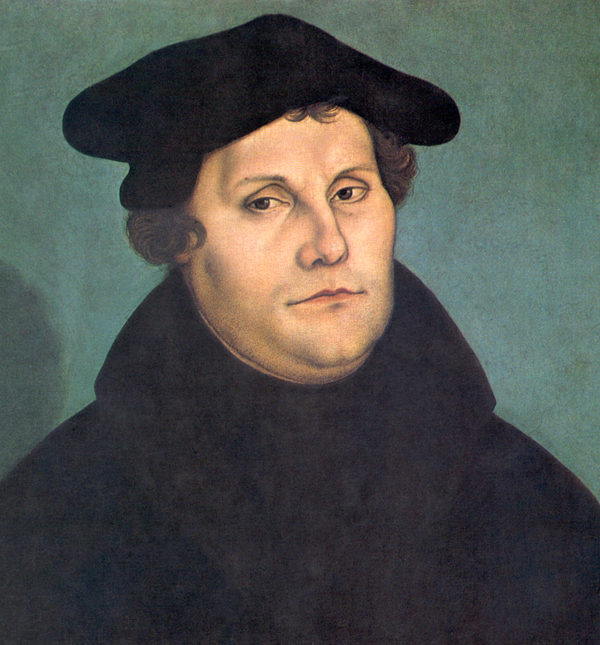
Calvin’s theological doctrines went on to become extremely important and Calvinism, as it is known today, is primarily represented by the Continental Reformed, Presbyterian, Evangelical Anglican, Congregationalist, and Reformed Baptist denominational families of churches.
In South Africa, his theological works form the bedrock of the Dutch Reformed Church and are still considered by some to be an integral part of traditional Afrikaner identity.
15th September 1795 – Britain seizes the Dutch Cape Colony in southern Africa to prevent its use by the Batavian Republic
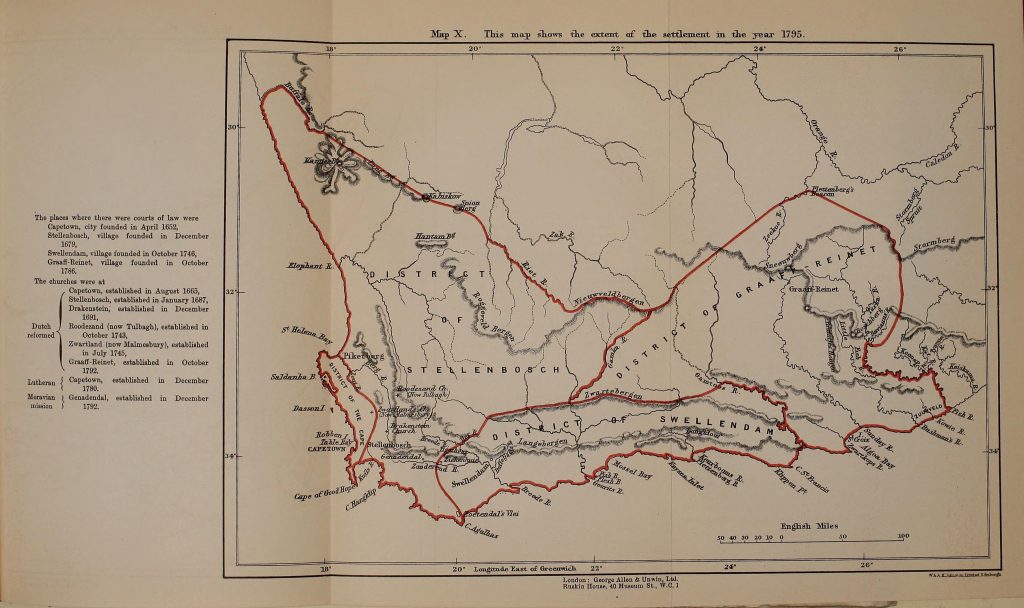
During the French revolutionary and Napoleonic wars in Europe (1792-1815), the Dutch Republic came under the control of its much larger French neighbour, which established a revolutionary puppet government in 1795 known as the Batavian Republic.
In response to the Dutch coming under French control, the British Empire, then at war with France, launched operations globally against the Dutch and their empire to prevent the French from using it to disrupt British control of global trade routes.
Part of these operations was a planned British invasion of the Dutch colony at the Cape of Good Hope on the southern tip of Africa. On 10 June 1795, British warships carrying troops arrived off the coast near Simon’s Town.
The British initially tried to sway the local Dutch governor over to their side, proposing an alliance against the French. However, the Dutch resisted, evacuating Simon’s Town, which they planned to raze to prevent the British from using it. In response, the British landed 800 marines on 14 July and captured the town.
The Dutch withdrew to the pass at Muizenberg, and a truce was arranged while the two sides negotiated further. More British troops arrived and the truce fell apart. On 7 August, British ships opened fire on the Dutch positions and the Dutch were driven back to Wynberg. A stalemate followed. As the Dutch prepared a counterattack in early September, hoping to take back Simon’s Town, the British forces were much enlarged by the arrival on 3 September of 14 vessels and 4 000 troops.
The British forces pushed the Dutch back towards Cape Town, and sent their ships to blockade the harbour. Realising their position was hopeless, the Dutch surrendered to the British on 15 September 1795.
The colony remained under British control until 1802, when it was returned to the Batavian Republic. However, the peace did not last and, in 1806, the British attacked again, once more capturing the colony from the Dutch, this time permanently. The Cape would remain under British rule until the formation of the Union of South Africa in 1910.
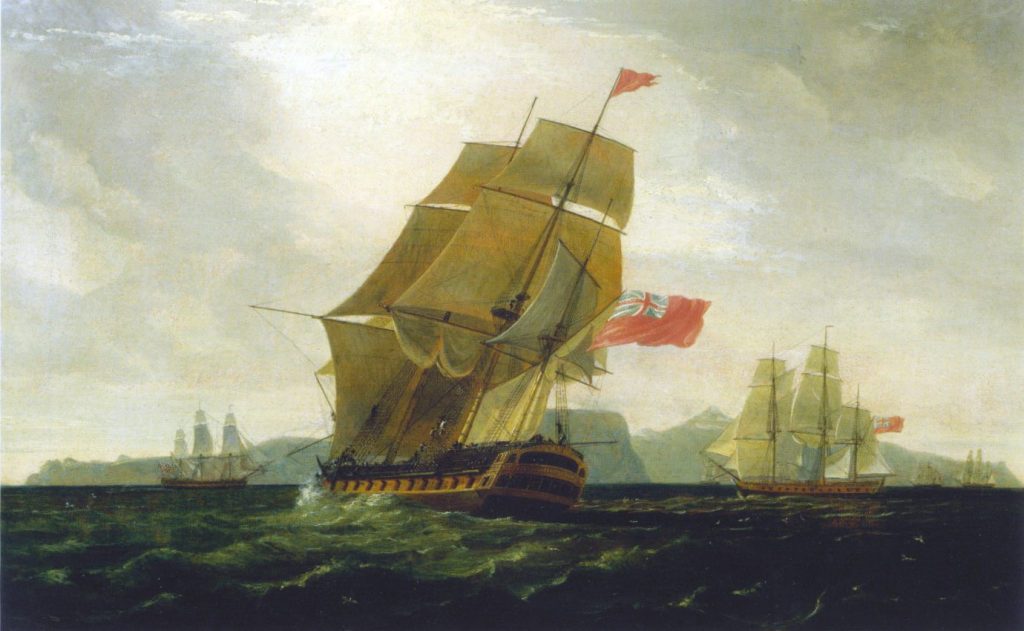
17th September 1950 – Birthday of Narendra Modi, current Prime Minister of India
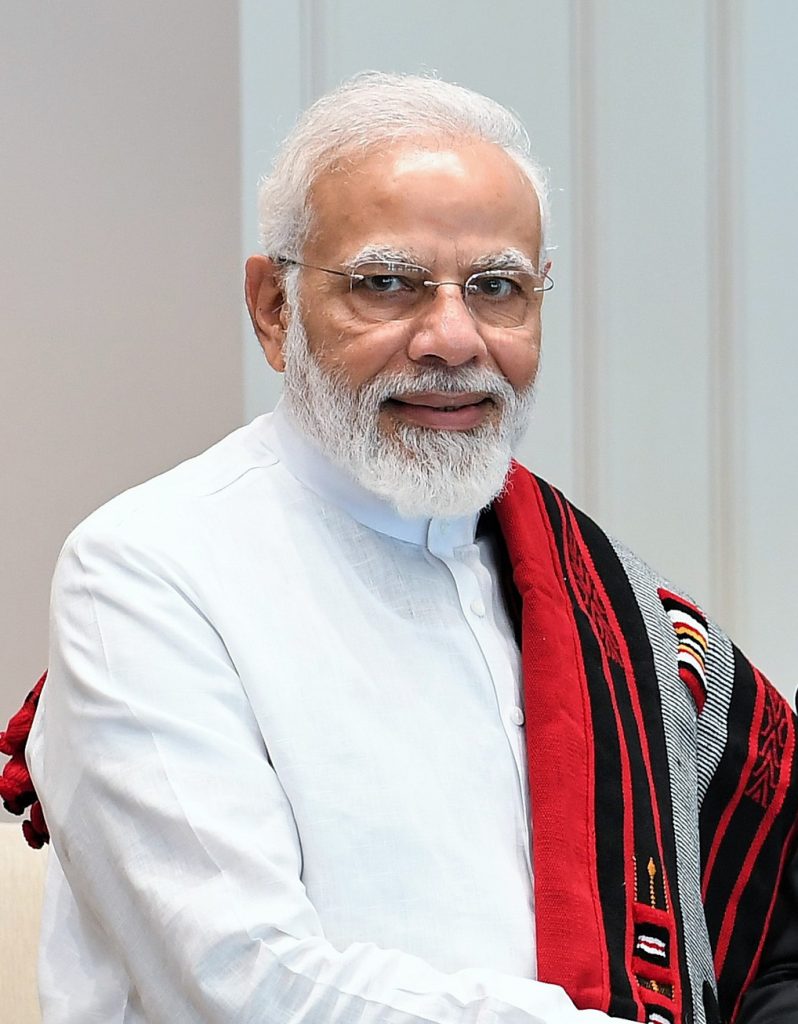
Narendra Modi was born three years after the creation of an independent India in 1947, in the western Indian state of Gujarat to Gujarati Hindu parents. His family were grocers belonging to the Modh-Ghanchi-Teli caste (oil-presser caste), one of the lower castes in the traditional Indian hierarchy, roughly equivalent to the lower middle-class. He was the third of six children.
While still in school, Modi famously helped his father sell tea at railway stations and bus terminals to help support his family, but persisted with his education, finishing high school in 1967. He was described by one teacher as ‘an average student and a keen debater, with interest in theatre’.
With a gift for rhetoric and theatrical larger-than-life performances, Modi soon caught the eye of his teachers and peers as a skilled debater.
At the age of eight, Modi was introduced to the world of politics when he joined the Rashtriya Swayamsevak Sangh (RSS) as a junior cadet. The RSS, a Hindu-nationalist paramilitary group which seeks to ‘strengthen the Hindu community’ and ‘uphold Indian culture’, was founded in 1925 and has an estimated membership of between four and five million today. The group has been banned several times both by the British and by post-independence Indian governments. Its supporters highlight its its charity work and its opposition to the strict enforcement of India’s caste system, while detractors claim it is a violent anti-Muslim organisation and an Indian version of fascism.
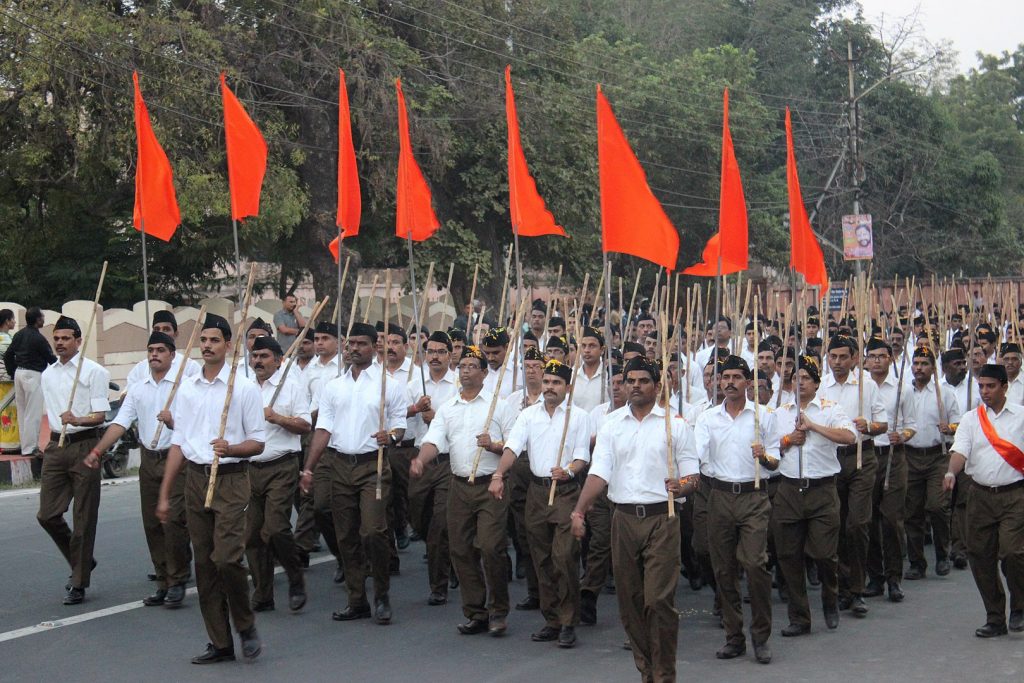
During his time in the RSS, Modi formed many contacts with Hindu nationalists and was mentored by prominent members of the RSS, including those who would go on to found India’s current ruling party, the Bharatiya Jana Sangh (BJP) in 1980.
Modi’s rise to prominence began during the 1975-1977 state of emergency in India when Prime Minister Indira Gandhi declared that the emergency measures which granted her almost unlimited dictatorial powers were necessary to defeat ‘internal and external’ threats to India. This has widely been interpreted as an attempt by Gandhi to seize absolute control of India. Under the state of emergency, many political groups across India were banned and huge numbers of Gandhi’s political opponents were jailed.
The RSS was banned during this period, too, and Modi went underground to organise resistance to the state of emergency, establishing safe houses for activists, organising demonstrations and printing anti-government pamphlets. The Economist described the RSS as ‘the only non-left revolutionary force in the world’ at the time. During this period, Modi established his skills as an organiser and began to rise through the ranks of the RSS.
When, in 1977, the state of emergency was ended and fresh elections were held, the opposition unseated Gandhi’s Indian National Congress (INC).
In 1985, Modi was assigned by the RSS to the newly formed BJP to organise for them in the Ahmedabad municipal election, which the BJP comfortably won in part due to Modi’s political skills. Modi rose through the ranks of the BJP over time, taking a brief break to open a school in 1992, which he ran until 1994. He was chosen as the BJP candidate for the state of Gujarat in 2001 and was sworn in on 7 October that year.
In 2002, Modi was embroiled in one of the most controversial episodes of his political career. In February that year, a train carrying Hindu pilgrims in Gujarat was attacked by hard-line Muslims who allegedly set fire to the train, killing 59 people. Ultimately, 31 Muslims were found guilty of arson and conspiracy for the crime, yet another violent act in India’s long history of violence motivated by religion. In response to this attack, Hindu mobs indiscriminately attacked Muslims across the region for the rest of the year; as many as 2 000 people were killed in inter-religious fighting across Gujarat and 150 000 people fled to refugee camps.
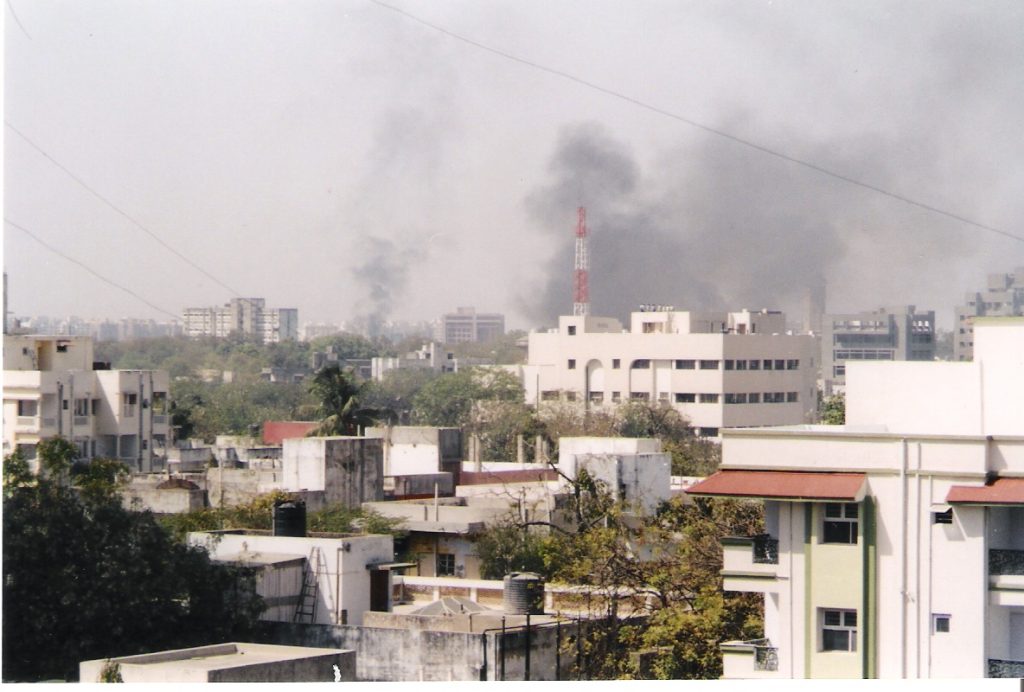
Questions about Modi’s involvement, and the involvement of his BJP party, along with its associated Hindu militias, have been the subject of serious debate since, with some accusing Modi and the BJP of being directly involved in the riots. Modi was quoted during the riots as saying: ‘What is happening is a chain of action and reaction.’ Others have claimed that while members of his government were complicit, Modi himself was largely uninvolved, and only failed to calm tensions.
As he entered his second term, Modi shifted his rhetoric away from hard-line Hindu nationalism to focus more on economic growth, favouring privatisation and government reforms in Gujarat. Under Modi, Gujarat topped the World Bank’s ease-of-doing-business rankings among Indian states for two consecutive years and, in 2013, Gujarat was ranked first among Indian states for economic freedom. This saw Gujarat achieve economic growth rates of 8% and higher.
In 2014, Modi was chosen as the BJP candidate for prime minister of India, an election he won by combining Hindu nationalist rhetoric with an emphasis on his strong economic record as governor of Gujarat. Since being elected, Modi has strengthened his party’s control over India, winning more seats in 2019.
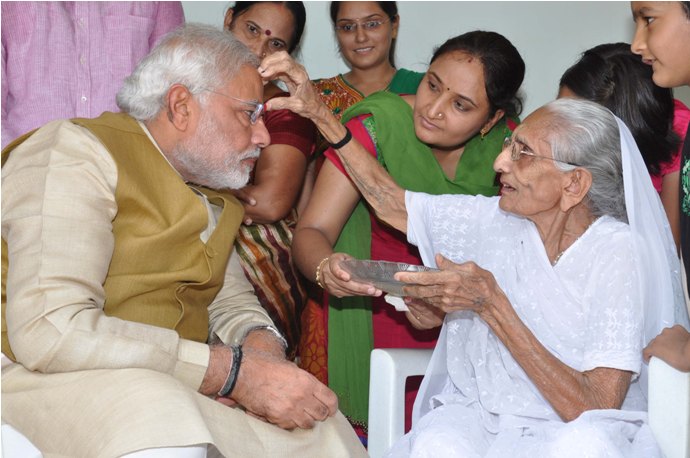
As prime minister, Modi has been praised for his efforts to expand Indian power and the country’s role in global affairs – including strengthening ties between India and the United States – as well as the strong economic growth under his leadership. His opponents have attacked him as an anti-Muslim bigot for his support for the Citizenship (Amendment) Act of 2019 and his hard-line stance against Pakistan. Some have also claimed his policies have failed to create enough employment opportunities for Indians.
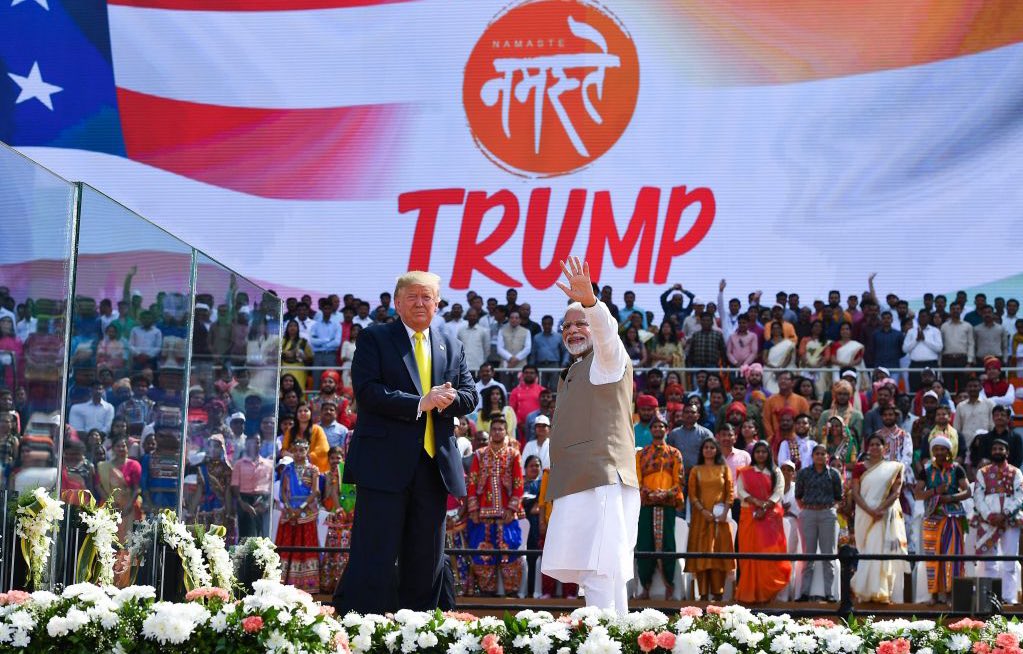
Modi entered into an arranged marriage when he was 18, but was never close with his wife, who he is largely estranged from. He publicly acknowledged his marriage only in 2014. Modi is also famously a vegetarian and teetotaller.
If you like what you have just read, subscribe to the Daily Friend

